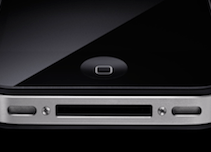 1.7 million iPhone 4s sold in three days. It’s a massive number any way you slice it. But it’s perhaps even more impressive when you consider the initial pre-order system failures, the device shortages (which Apple apologized for in their release), and the fact that half of the family isn’t even available yet (the white iPhone 4). And most impressive may be that those who bought it in the U.S. were willing to sell their souls to AT&T for another two years.
1.7 million iPhone 4s sold in three days. It’s a massive number any way you slice it. But it’s perhaps even more impressive when you consider the initial pre-order system failures, the device shortages (which Apple apologized for in their release), and the fact that half of the family isn’t even available yet (the white iPhone 4). And most impressive may be that those who bought it in the U.S. were willing to sell their souls to AT&T for another two years.
But GigaOM’s Kevin Tofel gives the beleaguered network credit for the launch today, citing the network as a “huge reason” Apple sold so many iPhones. On one hand, he has a good point. If AT&T hadn’t advanced the upgrade eligibility time (in some cases by as much as six months), it would have been much more expensive for many of them to upgrade from the iPhone 3GS to the iPhone 4 — and many likely wouldn’t have.
The fact that at least one survey suggests that as many as 77% of iPhone 4 buyers were people upgrading from older iPhones may make this idea even more potent (though only 600 or so people in three cities were surveyed — again, of 1.7 million phones sold).
But first of all, let’s remember that included in the 1.7 million number are four other countries not tied to AT&T that saw the iPhone 4 launch on the same day as the U.S.: UK, France, Germany, and Japan. Still, while Apple doesn’t break down iPhone 4 sales by countries, it’s likely safe to assume the majority were sold in the U.S.
So let’s say that Apple sold over a million of those iPhone 4s in the U.S. Now close your eyes and imagine a world where the iPhone wasn’t tied to one carrier in the U.S. (it’s easy if you try). I don’t think I would be going out on a limb at all to guess that Apple would have doubled that sales figure. Hell, even if they just added Verizon, I bet they would have doubled it (provided Apple produced enough phones in first place, of course). And even in that scenario, doubling the number may very well be modest.
At this point, the biggest inhibitor of iPhone growth in the U.S. is AT&T. Period.
I believe Apple knows this. But, as they so often do, they’re taking the side of profits over market share. They have a very sweet deal with AT&T. A deal that makes the iPhone their largest source of revenue. If they have to give up those exclusive terms, the subsequent deals with other carriers would likely be less sweet — particularly a Verizon deal, as they have some leverage being the largest carrier in the U.S. and one closely aligning itself with the competing Android platform.
So while AT&T may deserve some credit for the 1.7 million iPhones sold this weekend, they also deserve a significant amount of credit that more weren’t sold. And don’t think they don’t know that either.
PR bullshit aside, the reason AT&T allowed some iPhone users to upgrade to the iPhone 4 early is purely a business decision. In order to get the new phone, those customers also have to sign a new two year contract, tying them to the network for that timespan. Obviously, AT&T will be getting paid for each of those months by each customer. It will only take a couple months or so of your new contract for them to recoup the cost they ate so you could upgrade. So let’s not pat AT&T on the back too much here.
Further, while few people outside those at Apple know the terms of the exclusive AT&T agreement, at least some of those people work at AT&T. They have an advanced look at the writing on the wall. If they know that Apple plans to move the iPhone to other carriers, say, next year, AT&T would want to start maneuvering now to make sure customers can’t abandon ship so easily. How do you do that? Lock them into new contracts. New contracts with more expensive early termination fees.
I’m not saying that’s for sure what is going on here. But it makes a lot of AT&T recent maneuvers make a lot of sense.
So, yes, the number of iPhone 4s is impressive. But the number of iPhone 5s Apple sells next year may be out of this world.
